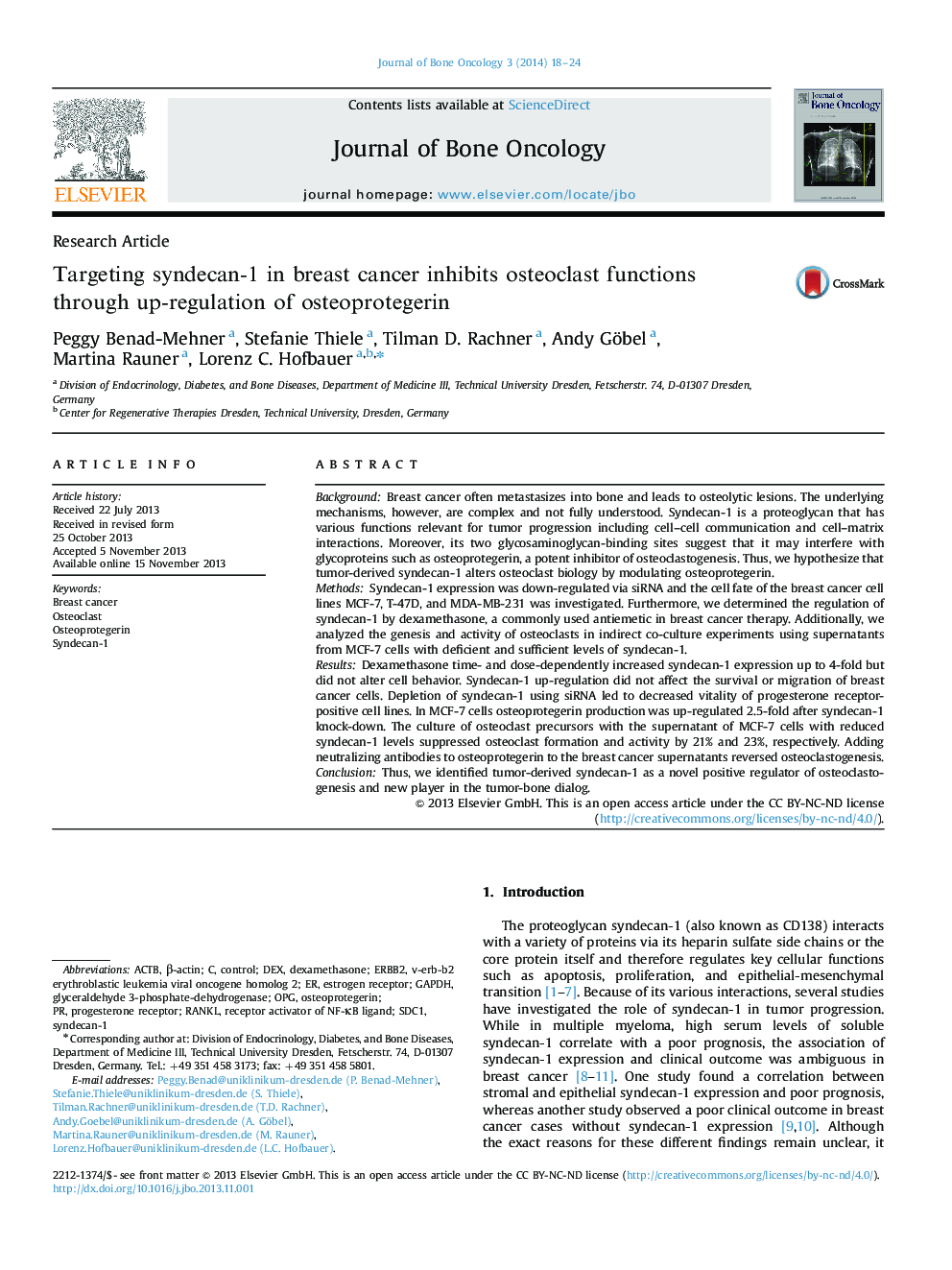| Article ID | Journal | Published Year | Pages | File Type |
|---|---|---|---|---|
| 2136136 | Journal of Bone Oncology | 2014 | 7 Pages |
BackgroundBreast cancer often metastasizes into bone and leads to osteolytic lesions. The underlying mechanisms, however, are complex and not fully understood. Syndecan-1 is a proteoglycan that has various functions relevant for tumor progression including cell–cell communication and cell–matrix interactions. Moreover, its two glycosaminoglycan-binding sites suggest that it may interfere with glycoproteins such as osteoprotegerin, a potent inhibitor of osteoclastogenesis. Thus, we hypothesize that tumor-derived syndecan-1 alters osteoclast biology by modulating osteoprotegerin.MethodsSyndecan-1 expression was down-regulated via siRNA and the cell fate of the breast cancer cell lines MCF-7, T-47D, and MDA-MB-231 was investigated. Furthermore, we determined the regulation of syndecan-1 by dexamethasone, a commonly used antiemetic in breast cancer therapy. Additionally, we analyzed the genesis and activity of osteoclasts in indirect co-culture experiments using supernatants from MCF-7 cells with deficient and sufficient levels of syndecan-1.ResultsDexamethasone time- and dose-dependently increased syndecan-1 expression up to 4-fold but did not alter cell behavior. Syndecan-1 up-regulation did not affect the survival or migration of breast cancer cells. Depletion of syndecan-1 using siRNA led to decreased vitality of progesterone receptor-positive cell lines. In MCF-7 cells osteoprotegerin production was up-regulated 2.5-fold after syndecan-1 knock-down. The culture of osteoclast precursors with the supernatant of MCF-7 cells with reduced syndecan-1 levels suppressed osteoclast formation and activity by 21% and 23%, respectively. Adding neutralizing antibodies to osteoprotegerin to the breast cancer supernatants reversed osteoclastogenesis.ConclusionThus, we identified tumor-derived syndecan-1 as a novel positive regulator of osteoclastogenesis and new player in the tumor-bone dialog.
